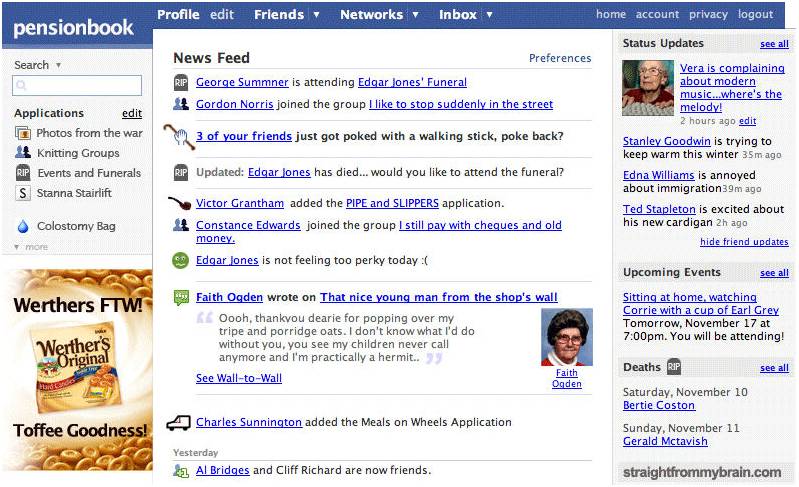At dinner in college last night I sat opposite a charming young woman who seemed surprised to learn that I had a FaceBook account. “Oooh”, she said, “Can I be your friend?”. “Certainly”, I replied, with what I imagined to be old-world courtesy, “I’d be honoured”. At which point one of her (slightly inebriated) friends further down the table shouted “Are you stalking her, then?”
Harrumph. But Lo! — here’s a weird report from The Register:
A social networking site has deleted most of its users over the age of 36 because it claims older users pose a danger of sex offending. It claims to be forced into the action by the Government, but the part of a law it cites is not yet in force.
Faceparty has deleted what it describes as “a huge number of accounts” from its social networking site in recent weeks. It lists ‘over 36 years old’ as one of its reasons for deletion.
“We understand that only a minority of older users are sex offenders, but you must understand that we cannot tell which,” it says in its explanation of the deletion of accounts.
“New government legislation means we need to check older users on the sex offenders list,” says its notice. “This legislation is based upon checking email addresses against a government provided list. Faceparty has never insisted on validated email addresses and can therefore not participate in this new scheme.”
I’d never heard of Faceparty, and the Register thinks that the company has misinterpreted the legislation, but it makes you think, doesn’t it?
And the real irony is that I’ve probably been on FaceBook much longer than anyone else at the table last night!

